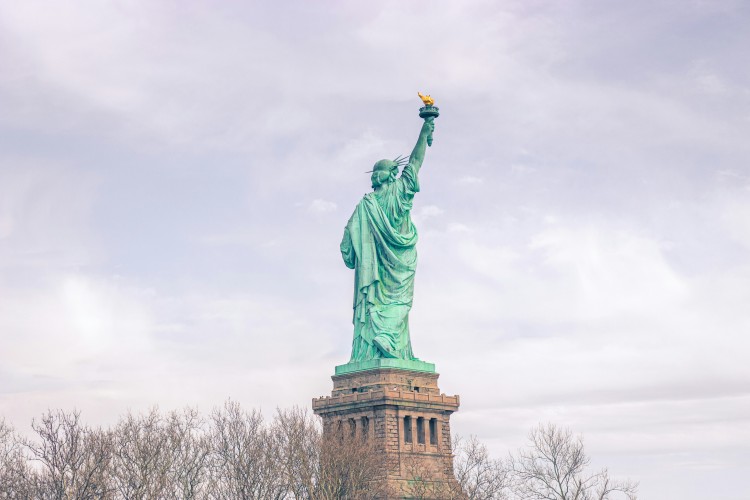In 2010, a historian predicted that the American hegemony might end by 2025 — not with a bang but with a whimper — as domestic divisions deepened and rival powers rose to challenge its authority. Today, that prediction appears prophetic as America faces increasing pressures from within and outside. Even as the US retains military dominance and an economy capable of immense influence, the structural underpinnings of its global power are eroding. This decline, though not necessarily terminal, signals a transition away from the so-called American Century.
Historically, the US leveraged its unmatched economic strength, technological innovation, and cultural influence to dominate the post-World War II global order. However, the foundations of the American hegemony are crumbling. The US share of global GDP has steadily declined, falling from 50% in the mid-20th century to approximately 15% today when adjusted for purchasing power parity. The globalisation, initially championed by the US, has redistributed industrial power, with China emerging as a key beneficiary.
READ | GST Council introduces complexities in its quest for simplicity
China’s rise has reoriented global economic networks, particularly in the Global South. In contrast to America’s interventionist foreign policy, China has cultivated influence through infrastructure investments, soft power campaigns, and state-sponsored media. The United States, while still a major player, has failed to present an alternative vision that resonates with developing nations, where perceptions of Chinese leadership are increasingly favourable.
Domestic challenges undermine American hegemony
Internally, the US faces widening income inequality, political polarisation, and a diminished sense of collective purpose. The structural flaws in America’s domestic governance are hindering its ability to project sustainable global leadership. The failures of successive administrations to address wage stagnation, healthcare inequities, and a crumbling infrastructure have weakened the country’s internal cohesion and moral authority.
Moreover, the rise of populist strongmen like President-elect Donald Trump reveals a retreat from multilateralism and global cooperation. Decisions such as the disengagement from the Paris Climate Agreement, and trade wars alienate allies, while chipping away at the American hegemony in a multipolar world.
US military dominance cuts both ways
The US military remains unmatched in sheer capability, but its over-reliance on military interventions has backfired. Wars in Iraq and Afghanistan eroded public trust and drained resources without delivering strategic gains. The Pentagon’s focus on high-tech weaponry and surveillance has failed to prevent asymmetric challenges, such as cyber threats from China and Russia.
The collapse of the US-led NATO alliance seems unlikely, but Trump’s disdain for multilateral commitments has already weakened transatlantic trust. In the Asia-Pacific, Washington’s support for Taiwan and opposition to China’s territorial ambitions has kept tensions high, yet without clear long-term strategies to maintain regional stability.
Cultural clout in decline
The era of American hegemony in culture, powered by Hollywood, pop music, and fast food, has given way to multipolar influences. China’s Confucius Institutes and state-run media have successfully promoted an alternative cultural narrative, particularly in Africa and Latin America. While the US still wields soft power, it lacks a cohesive strategy to counter Beijing’s well-funded initiatives.
To regain its edge, the US must reinvest in cultural diplomacy, showcasing the diversity and vitality of its pluralistic society. Programmes like “hip-hop diplomacy” illustrate how the US can leverage its unique cultural landscape to connect with younger, global audiences.
To navigate its diminishing clout, the US must recalibrate its foreign policy. Instead of acting as a global police force, Washington should focus on empowering regional allies to maintain stability in Europe, West Asia, and East Asia. A multipolar world order is inevitable, and a more collaborative US strategy could turn potential rivals into partners.
America’s economic bubble
In the realm of global financial markets, however, a paradox emerges: while America’s geopolitical dominance fades, its stock market floats high above the rest. At nearly 70% of the leading global stock index, the US market commands a valuation premium far beyond its share of the global economy.
Investors, buoyed by the perception of America’s exceptionalism, continue to pour unprecedented capital into its markets, driven by the allure of tech innovation, strong earnings, and policy expectations tied to the Trump administration’s return. Yet, this soaring faith in US markets resembles a mania rather than measured optimism. History reminds us that bubbles—defined as good ideas taken too far—inevitably burst, and the overvaluation of American markets threatens to be no exception.
The consequences of this investor obsession ripple globally, as smaller markets experience capital outflows that weaken currencies, tighten monetary policies, and stifle growth. Unlike previous eras when a rising US market buoyed others, today’s inflows into American markets appear to sap vitality elsewhere, turning the global economy into a zero-sum game. This artificial inflation of America’s financial supremacy may mask its underlying structural weaknesses, but it also sets the stage for a potentially sharp correction.
As sentiment increasingly drives fundamentals, the “mother of all bubbles” in US markets could signal another dimension of America’s diminishing global clout, highlighting the fragility beneath the facade of economic dominance.
Reducing military adventurism and focusing on pressing global issues like climate change would strengthen America’s global standing. Leading the energy transition, for instance, offers the US a chance to reassert economic and technological leadership. Conversely, policies that undermine renewable energy development risk rendering American industries obsolete in a rapidly evolving global economy.
While the United States may remain the most powerful nation, its ability to dominate the global order is waning. The rise of China, internal political fragmentation, and a shifting international focus suggest that the US must adapt to a more competitive and cooperative global environment. Failure to do so risks relegating America to the margins of global influence.
The American Century may be ending, but the US still has the opportunity to redefine its role in a changing world — provided its leaders act with vision, humility, and a willingness to embrace change.

